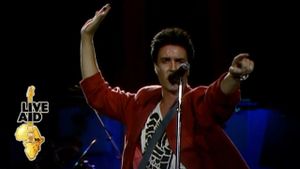The Hong Kong Public Opinion Research Institute (HKPORI) has declared it will indefinitely suspend all self-funded research activities amid rising pressure from authorities and investigations related to its leadership.
Founded over three decades ago, HKPORI has been at the forefront of public opinion polling, particularly on politically sensitive issues. Its mission, led by CEO Robert Chung, has always emphasized lawfulness and scientific integrity. Still, the institute's statement made clear: "in the current environment, it has to pause its promotion of scientific polling." This drastic measure stems from heightened scrutiny after the implementation of the Beijing-imposed national security law aimed at curtailing dissent and criticism of the government.
On Thursday, the institute announced it was also considering complete closure as it explores all potential options for the future. The announcement follows troubling developments, including the questioning of CEO Chung by national security police last month on suspicions of aiding a fugitive.
Former deputy executive director Chung Kim-wah finds himself embroiled in legal troubles, now residing in Britain. He has been accused of inciting secession and colluding with foreign forces through social media action, leading to him being placed on Hong Kong's wanted list. The police have intensified investigations, having raided HKPORI's office most recently.
The suspension signifies not just an end to their current surveys but highlights the growing difficulties for academic research within Hong Kong’s increasingly controlled environment. This institution has long conducted opinion polls about government performance, civil rights, and freedom of the press, areas of research often criticized by pro-Beijing factions. The institute has warned of the ramifications of its suspension, stating, "The research team hopes there will be another opportunity to resume its work." Such aspirations reveal the downcast spirit of researchers facing now uncertain futures.
The events leading to this decision reflect broader trends since the issuance of the national security law, which critics argue undermines freedoms previously enjoyed by Hong Kong. The political climates, including the recent actions against HKPORI, display the fine line researchers must tread when questioning sensitive governmental matters.
HKPORI’s decision is not isolated; its fate reverberates through the core of civil society and academia. The institute has been instrumental over the years providing valuable insights through its regular tracking surveys first initiated back in 1992. Those surveys now stand suspended, leaving gaps where public sentiment used to be recorded without fear of reprisal.
Chung conveyed openness to potential buyers or interested parties for taking over the institute, which has drawn mixed responses. Some industry insiders express concern over who would be interested, as potential buyers enter the fray at a time when public polling faces unprecedented constraints.
Opposition politicians and advocates for free speech have voiced alarm over what the future might hold for public opinion research. The concerns focus on how research environments can thrive amid oppressive legal frameworks. The indefinite suspension serves as evidence of the risks faced by organizations dedicated to voicing public sentiment.
With investigations still looming, the HKPORI's future remains hazy. While Chung conveyed ambition to find someone who could sustain HKPORI’s work, critics fear the broader impact of these cautionary tales. Can genuine public opinion ever flourish under such pressure? Unfortunately, the suspension begs such questions, leaving many stifled and uncertain.
These challenges not only highlight the uneasy state of polling but also point to the potential chilling effects on academic freedoms and civil liberties. The police raids and resulting investigations suggest this might not be the end of HKPORI, but rather the beginning of increased tensions surrounding free speech and expression.
Whether this respected institution will manage to navigate the treacherous waters of politics to reemerge remains to be seen. But as it stands, their commitment to representing the public voice now hangs perilously on the decisions made by those who govern.



